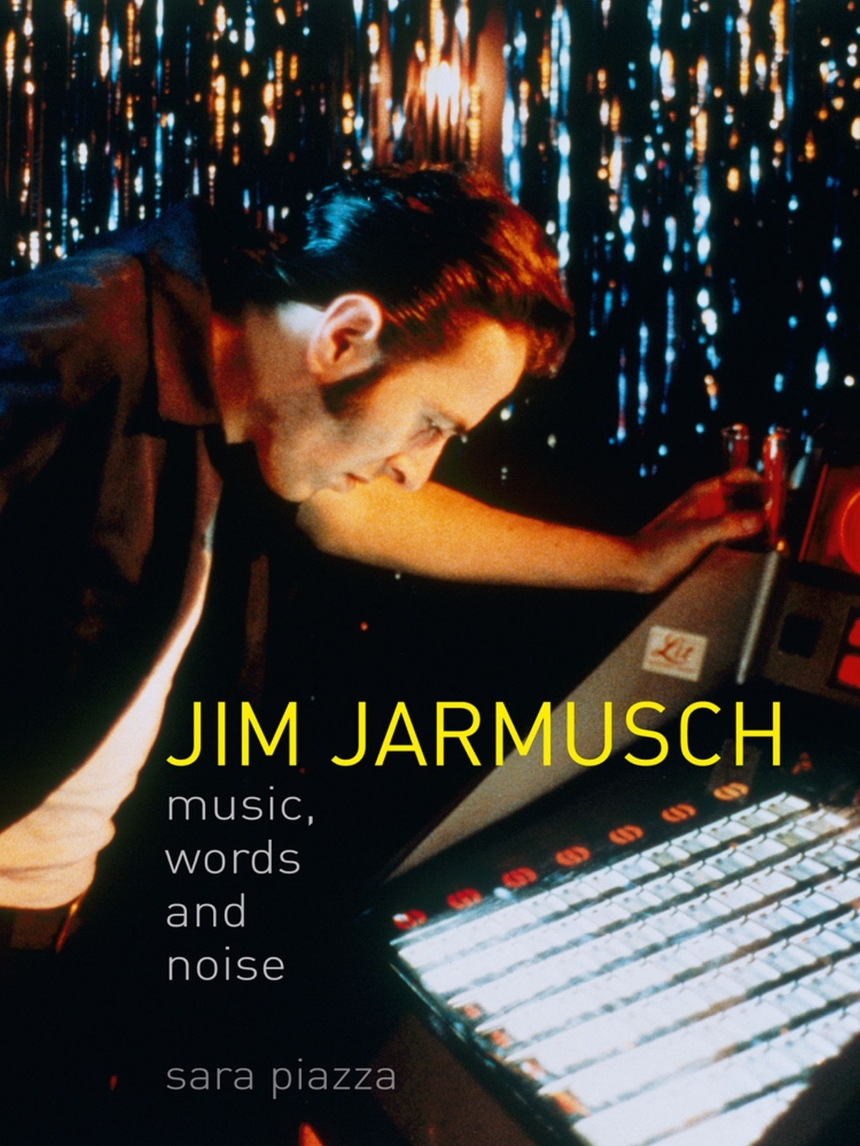Jim Jarmusch: Music, Words and Noise is the first book to examine the films of Jim Jarmusch from a sound-oriented perspective. The three essential acoustic elements that structure a film— music, words and noise—propel this book’s fascinating journey through his work. Exploring the director’s extensive back catalogue, including Stranger Than Paradise, Down By Law, Dead Man, and Only Lovers Left Alive, Sara Piazza’s unique reading reveals how Jarmusch created a form of “sound democracy” in film, in which all acoustic layers are capable of infiltrating each other and in which sound is not subordinate to the visual. In his cultural melting pot, hierarchies are irrelevant: Schubert and Japanese noise-bands, Marlowe and Betty Boop, can coexist easily side-by-side. Developing the innovative idea of a “silent-sound film,” Piazza identifies prefiguring elements from pre-sound-era film in Jarmusch’s work.
Highlighting the importance of Jarmusch’s treatment of sound, Piazza investigates how the director’s distinctive reputation consolidated itself over the course of a thirty-year career. Based in New York, Jarmusch was able to develop a fiercely personal vision far from the commercial pressures of Hollywood. The book uses wide-ranging examples from music, film, literature, and visual art, and features interviews with many prominent figures, including Ennio Morricone, Luc Sante, Roberto Benigni, John Lurie, and Jarmusch himself.
An innovative account of a much-admired body of work, Jim Jarmusch will appeal not only to the many fans of the director but all those interested in the connections between sound and film.
Visit the author's page for this book: http://jimjarmusch-musicwordsandnoise.com
Highlighting the importance of Jarmusch’s treatment of sound, Piazza investigates how the director’s distinctive reputation consolidated itself over the course of a thirty-year career. Based in New York, Jarmusch was able to develop a fiercely personal vision far from the commercial pressures of Hollywood. The book uses wide-ranging examples from music, film, literature, and visual art, and features interviews with many prominent figures, including Ennio Morricone, Luc Sante, Roberto Benigni, John Lurie, and Jarmusch himself.
An innovative account of a much-admired body of work, Jim Jarmusch will appeal not only to the many fans of the director but all those interested in the connections between sound and film.
Visit the author's page for this book: http://jimjarmusch-musicwordsandnoise.com
Reviews
Table of Contents
Introduction
Music
Voices: Amos Poe
1. Flashback: New York Stories
Voices: Phil Kline
2. Jarmusch, the Musician
Voices: John Lurie
3. John Lurie, Gamelan, and Minimal Music
Voices: Marc Ribot
4. Memphis Hip Hop, Mestizos and Samurai
Words
Voices: Masatoshi Nagase
5. The Battle Against Verbocentrism
Voices: Roberto Benigni
6. The Melting Pot of Words, the Way of Cultural Relativism
Voices: Luc Sante
7. Jarmusch, the Poet
Noise
Voices: Eszter Balint
8. Communicating at all Cost: Intelligent Noise
Voices: Taylor Mead
9. Silence
Voices: Ennio Morricone
Voices: Jim Jarmusch
References
Profile of Interviewees
Musical Filmography
Acknowledgements
Photo Acknowledgements
Index
Music
Voices: Amos Poe
1. Flashback: New York Stories
Voices: Phil Kline
2. Jarmusch, the Musician
Voices: John Lurie
3. John Lurie, Gamelan, and Minimal Music
Voices: Marc Ribot
4. Memphis Hip Hop, Mestizos and Samurai
Words
Voices: Masatoshi Nagase
5. The Battle Against Verbocentrism
Voices: Roberto Benigni
6. The Melting Pot of Words, the Way of Cultural Relativism
Voices: Luc Sante
7. Jarmusch, the Poet
Noise
Voices: Eszter Balint
8. Communicating at all Cost: Intelligent Noise
Voices: Taylor Mead
9. Silence
Voices: Ennio Morricone
Voices: Jim Jarmusch
References
Profile of Interviewees
Musical Filmography
Acknowledgements
Photo Acknowledgements
Index

